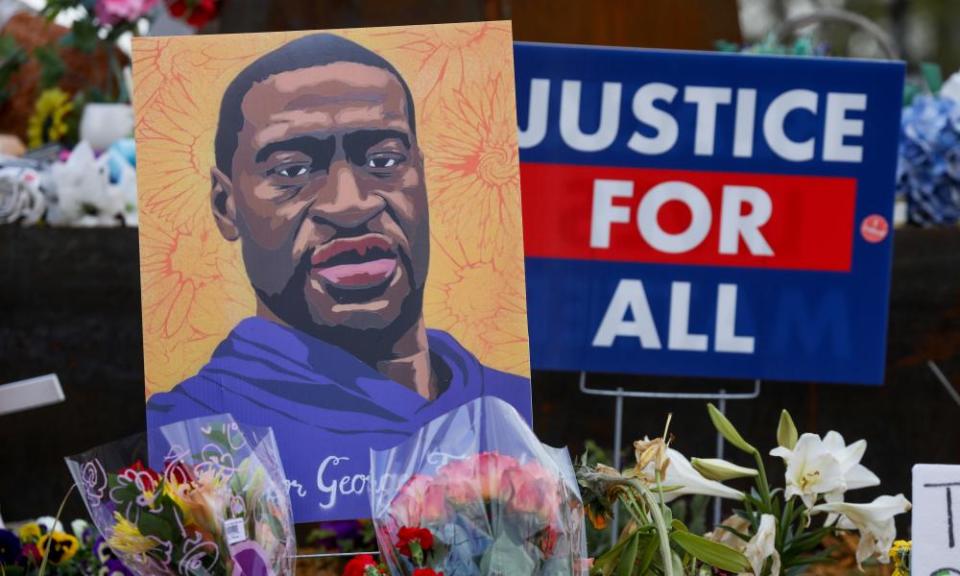Derek Chauvin: ex-officer convicted in George Floyd’s murder asks for new trial

Derek Chauvin, the former Minneapolis police officer convicted of murdering George Floyd, has asked a judge for a new trial, according to a court document filed Tuesday.
Chauvin’s attorney, Eric Nelson, said his client had been deprived of a fair trial, adding that there had been prosecutorial and jury misconduct and errors of law at trial and that the verdict was contrary to law.
Related: Juror says video of George Floyd’s death was like attending a funeral every day
Nelson cited many reasons in his request for a new trial, including allegations of prosecutorial and jury misconduct.
Nelson also said judge Peter Cahill, who presided over the trial, had abused his discretion when he denied an earlier request for a new trial based on publicity during the proceedings, which Nelson said threatened the fairness of the trial.

Nelson also took issue with Cahill’s refusal to sequester the jury for the trial or admonish them to avoid all media, and with his refusal to allow a man who was with Floyd at the time of his arrest to testify.
The move comes two weeks after Chauvin was found guilty of second- and third-degree murder and manslaughter in Floyd’s killing.
A 12-member jury swiftly and unanimously found Chauvin, 45, guilty on all three counts he faced, following three weeks of testimony from 45 witnesses, including bystanders, police officials and medical experts.
The rare verdict against a police officer is considered a milestone in the fraught racial history of the United States and a rebuke of law enforcement’s treatment of Black Americans.
Ben Crump, an attorney for the Floyd family, called the verdict “a turning point in American history for accountability of law enforcement” at the time.
In a confrontation captured on video, Chauvin, a white veteran of the police force, pushed his knee into the neck of Floyd, a 46-year-old Black man, for more than nine minutes on 25 May 2020. Chauvin and three fellow officers were attempting to arrest Floyd, accused of using a fake $20 bill to buy cigarettes at a grocery store.
Nelson also asked the judge for a hearing to impeach the verdict on the grounds that the jury committed misconduct, felt race-based pressure, felt intimidated or threatened, and/or failed to adhere to jury instructions, though the filing did not include details about that assertion. To impeach a verdict is to question its validity.
The brief did not mention recent reports that one of the jurors participated in a 28 August march in Washington DC to honor Martin Luther King Jr.
That juror, Brandon Mitchell, has defended his actions, saying the event was to commemorate the 1963 March on Washington and was not a protest over Floyd’s death. Floyd’s brother and sister, Philonise and Bridgett Floyd, and relatives of others who had been shot by police addressed the crowd at the march last summer.
A request for a new trial is routine following a guilty verdict and often mirrors issues that will be raised on appeal, said Mike Brandt, a Minneapolis defense attorney who has been closely following the case. If this request is denied, it can add another layer of decisions for Nelson to appeal. Brandt and others have said Chauvin’s convictions are unlikely to be overturned.
Brandt said Nelson will likely file more detailed written arguments on these issues. The purpose of holding a hearing to impeach the verdict would be to develop a factual record and present evidence that could determine whether the verdict was compromised. If a hearing is granted, it’s likely Mitchell would be called in to answer questions, Brandt said.

 Yahoo Finance
Yahoo Finance 